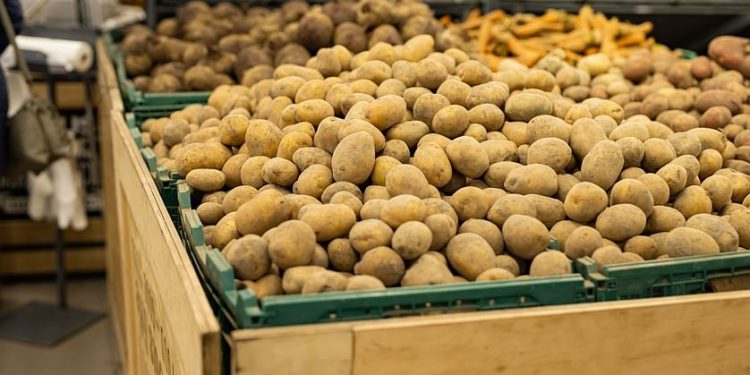In Bangladesh, where potatoes are a staple food, recent reports have revealed a worrying trend: sharply rising potato prices. According to a report by Dhaka-based Business Standard newspaper, prices reached a staggering BDT 77 (approximately US$0.70) per kilogram, bucking the usual trends seen during the harvest season. This unexpected surge has forced farmers, agronomists and agricultural engineers to understand the underlying causes and implications for the agricultural sector.
Typically, February and March mark the potato harvest season in Bangladesh, a period when prices traditionally reach their lowest levels. However, this year there was an unexpected twist: prices soared to unprecedented heights. Experts explain this phenomenon by a combination of factors, the main one of which is the limited supply of freshly harvested potatoes. It is estimated that potato production could fall by as much as 30% compared to the previous year, primarily due to the devastating effects of late blight on potato fields.
The impact of these supply shortages is compounded by a combination of rising raw material costs and adverse weather conditions. Rising prices for potato seeds and fertilizers, coupled with unfavorable climatic conditions, have hampered production efforts, resulting in lower yields. Consequently, the influx of new crops into the market was insufficient to meet the growing demand, leading to further increases in prices.
The gravity of the situation was highlighted during the recent Eid al-Fitr holiday, when reports emerged that potato prices were higher than low-quality rice, a significant departure from the usual price difference between the two staple foods. The crisis, which has been making headlines since July 2023, has attracted close attention from both government agencies and agricultural organizations.
While the government initially suspected market manipulation by middlemen and cold storage operators, conflicting reports have complicated efforts to identify the root cause of the crisis. Moreover, the government’s attempts to address the issue through imports have run into problems as logistical hurdles have prevented the timely arrival of imported potatoes from India.
The recent incident involving delayed unloading of potatoes at the Petrapole-Benapole checkpoint serves as a bitter reminder of the urgent need to streamline import processes and reduce losses. As Bangladesh grapples with the consequences of its potato predicament, stakeholders across the agricultural spectrum must collaborate to develop sustainable solutions that guarantee food security and promote economic stability.
Conclusion: The unprecedented rise in potato prices in Bangladesh has highlighted the fragility of the agricultural sector and the importance of proactive measures to address supply chain disruptions. By promoting collaboration between government agencies, agricultural stakeholders and industry experts, Bangladesh can address the current crisis and chart a course towards a more resilient and resilient future for its potato industry.







